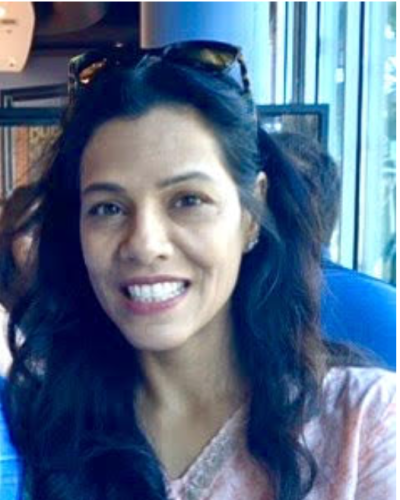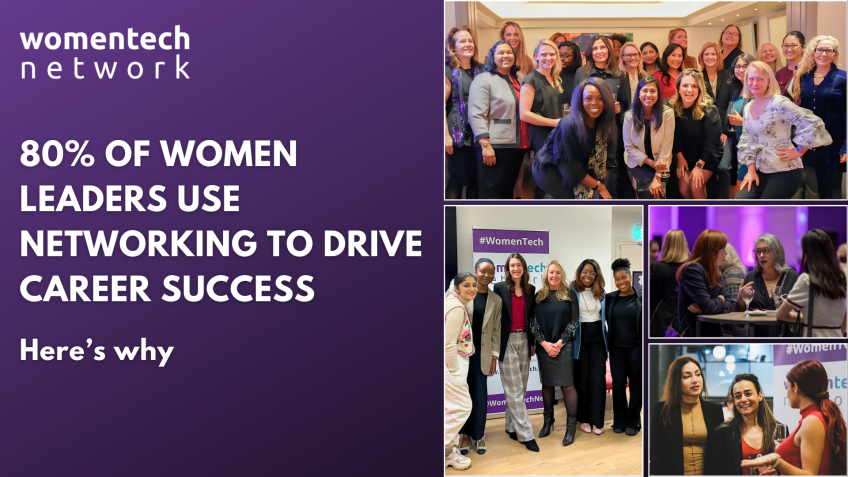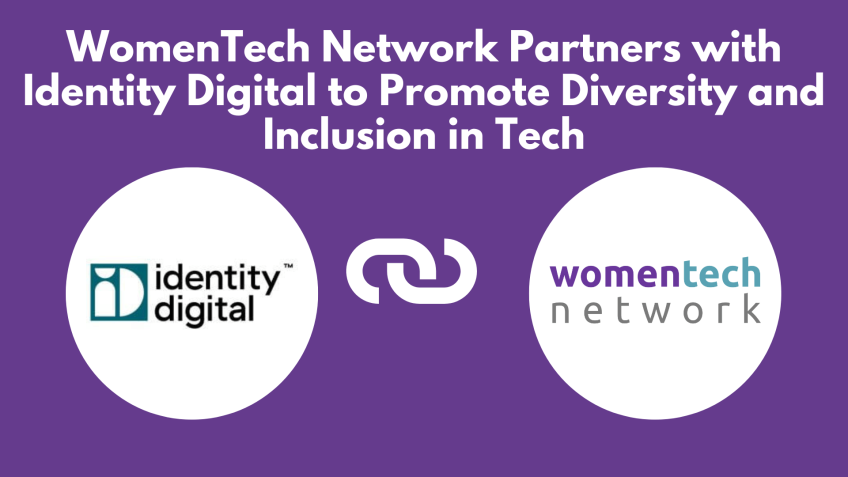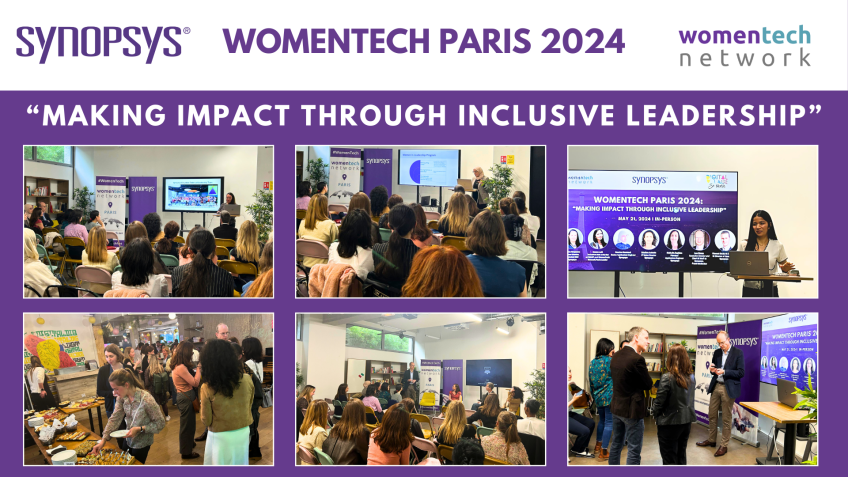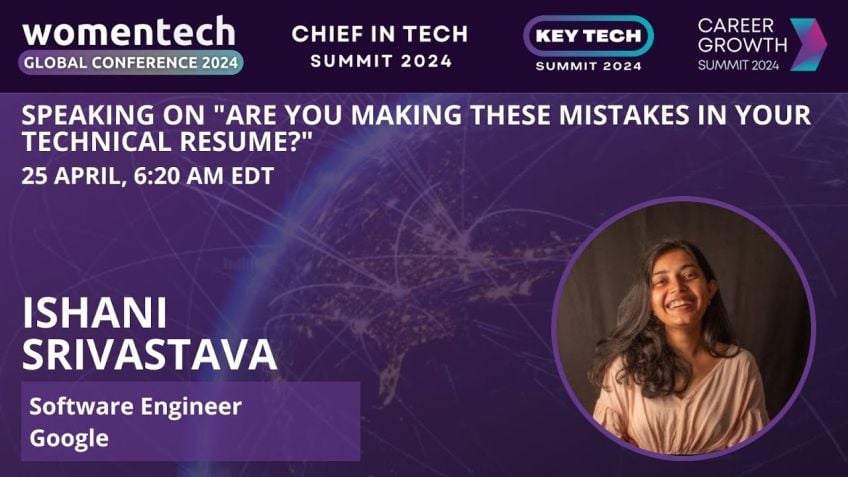Taking Ownership Of Your Career
Rehmat Kharal
Vice President GTM Enablement & Sales DevelopmentTaking Ownership of Your Career: A Journey towards Success
Life's journey is always rewarding when you have control over your happiness and your career. This principle was expounded on by Rahma Carl, the vice president of the Global Vice President of sales enablement and sales development at Harness, who shared her personal story on how doing just that enhanced her life significantly. Let's delve into her insights;
The Start of a Resilient Journey
"My journey started by taking the reins of my own success, and the place I am today is a product of grit and a growth mindset applied to everyday life". The journey, as Rahma Carl recalls, is focused on learning, growth, and staying true to her principles.
Understanding and Owning Personal Achievement
In any journey, the measure of success varies. For Rahma, the awards she has received symbolize significant milestones. From getting the 'best mom in the world' award from her children, to the Drum Major award for volunteerism presented by President Barack Obama and the Silicon Valley Business Journals Women of Influence Award. These recognitions were a testament to her immeasurable merit on both personal and professional levels.
Finding the Right Balance for Greater Success
Everyone experiences moments of cognitive dissonance in their journey to greatness. For Rahma, such a period came when she felt torn between motherhood and a pressing urge to advance her career. After a 14-year-long hiatus to raise her children, she decided to go back to work, largely influenced by the discovery of her dormant professional potential.
The Breakthrough: Getting Discovered and Overcoming Doubt
When Rahma first got an offer to rejoin the corporate world, she was worried about the unfamiliar tech industry. However, after speaking confidently from her heart at a volunteer event and receiving an accolade, someone saw potential in her. This chance encounter led to an invitation to join one of the largest tech companies in Silicon Valley.
Acing the Unusual Interview
From a discovery phase to a crucial test, Rahma shares her first tech interview experience. She was provided a box with a router and asked to research and present her findings a week later. 'Rahma recalls, "With my newfound resolve, I prepared like never before, presenting a story from a technical and business perspective." This hard work and diligence led to a job offer which went against her initial doubts about working in the tech industry.
The Journey towards Self-Advocacy
After earning the offer, Rahma faced a test of confidence and self-advocacy. She proposed her terms, outlining her non-negotiable need to balance work with her duties as a parent. As Rahma narrates, the company responded with not only acceptance but also a raise, reassuring her that rooting one's career path in transparency, self-advocacy and family commitment is possible.
Reflecting on Growth and Planning Ahead
According to Rahma, the key to a fulfilling career journey is self-reflection, proactive goal-setting, celebrating every achievement and accepting the reality that no one is perfect. The focus should be on what you are good at, your next professional milestone, and owning your current success.
Success Unveiled: Overcoming Doubt and Honing Strengths
Rahma stresses on the need not to compromise on self-advocacy, learning new industry trends, and developing a personal brand. “If you believe you deserve a promotion or a chance at a new opportunity, advocate for yourself,” she asserts. As part of this continuous evolution, owning successes, constantly learning, and understanding your strengths and weaknesses are crucial.
Conclusion: Your Success, Your Choice
As Rahma concludes, it's clear that taking control of your career path is a deliberate process that requires self-belief, resilience, and a perpetual appetite for learning. It's about owning your life, your happiness, and channeling your energy towards a purpose that aligns with your values. And most importantly, it's about understanding that your primary mentor should be you.
Video Transcription
My name is Rahma Carl and I am here today to talk to you a little bit about taking ownership of well, your career and quite frankly, uh your life, your happiness and your success. So let's go ahead and get started as we get into the session here.I thought I'd tell you a little bit about me. So you could understand my journey and how I actually took, you know, the reigns of my own success in my own career. So here's a little bit about me on the left hand side, you can see the number of, of tech companies that I've been a part of whether it's uh Cisco app dynamics, Big Panda rubric or where I'm at today at Heart Harness. I'm actually the vice president, the Global Vice President of Sales enablement and sales development at harness. Um But more importantly than that, I'm actually a mother of three daughters. I'm Canadian and I always talk about being Canadian because I'm based out in the Bay area in Silicon Valley.
But I believe I own a lot of my uh gumption I guess is a good one word for it to my Canadian roots. I'm very big on living by my virtues and my religion. And, um, I practice the religion of Islam. And the reason I talk about that is I really do think when you have a tied tie to your spiritual beliefs, it actually gives you a lot of discipline in your life. And I can say that that is true for, for me. Um, I've won a number of different awards, uh, and I've put them in here and I guess what has been most um stack ranked by me as most important or deemed most valuable. The first one is uh awarded by my kids, best mom in the world. I think I take that award to heart. I don't take it lightly. Um A lot of us, you know, are holding and wearing multiple different hats, right? And multiple different roles. And for me, my priority is, is always gonna be my kids. And so, you know, there's moments in life, obviously when you're a great happy mom and, and other times when, hey, you gotta come down hard on your kids and deal with the um the issues. But to hear from my kids that they think I'm the best mom in the world most of the time anyway, is a great reward and accomplishment for me. I've also won the drum major award um that was awarded by President Barack Obama.
So a really big part of my virtues um is also about giving back and being a really big volunteer. And so the Drum Major award is actually presented to volunteers who have uh done a number of hours in, in service in different fields. And so I'm really proud of that award as well because I think giving back to the community and volunteering is, is huge and really um helps define who I am as a person. Um In 2021 I was awarded the Silicon Valley Business Journals Women of Influence Award. Um Feel great about that as well. I've been awarded a few different awards for uh sales Enable Enablement. Uh When it comes to Women making an Impact Award. I got that one in 2022 and my background is in sales. So I've won a number of different sales awards as well. I want to talk a little bit about how I actually got started. So keep in mind the logos are on the left hand side as I walk through my story. So at the very beginning, honestly, when we talk about owning the, you know, success when it comes to our career path and what we're actually gonna be doing with our lives, we do have to get past our own mental journey or get out of the way when it comes to our head space. And for me, it was very interesting because I, I mentioned that I'm a mother of three. I was very, very driven in school, uh finished school two years ahead of my class had earned two degrees by the time I was 21 years old and was right.
Go and, and rearing to work. Remember, I was in Canada, born and raised in Canada. Soon after graduating from school. At the age of 21 I got married and moved to Silicon Valley, the Bay Area. Uh I worked for about a year before I was pregnant with my first daughter. And then I actually took a long hiatus in my career for about 13 or 14 years to, to raise my kids because they're all back to back in age. And so when it, it was time to go back to work, I was about 35 or 36 years old. And, um, it was one of those things where I was like, all right, you know, home versus work. Do I stay at home with my kids or do I go back to work? I, I had this dilemma and I wasn't sure I knew I had a lot of potential. I had a lot of drive, but I also knew that I wanted to be there for my kids. And that really led me into mom guilt that I'm sure many of you have felt as well. Not only was it mom guilt about what my kids would think of me if I decided to go back to work. But what about friends and family?
And, and honestly speaking, you know, sometimes when it comes to our friends, uh, my stay at home mom, friends, you know, kind of had their opinions about some of the women in career that had gone back, back to work and put their kids in daycare with nannies, et cetera. Um, and, and the opposite was true as well. I had friends who were working and they judged other moms that were staying at home and I was really conflicted and then I thought about my mom and, and my husband and my mother-in-law and everybody else. And what would they think? I was home for 13 or 14 years? And now suddenly I wanted to go back to work, but ultimately to get out of my head space, I started thinking, well, what about me? You know, um, I have given 13 or 14 years and I'm, you know, to my kids dedicated fully. I've, I've done a lot of volunteering. I've, I've been there for my friends and I've been there for my family and it doesn't mean I'm not gonna be there anymore. But that same kid that was, you know, progressed in school two years ahead of time and had earned two degrees by the time she was 21 that person still lived inside of me as well. Right. I still had that drive and I still had that energy and I needed to do something about it. So I didn't want to forget about me.
And this was a mental journey that I kind of went through and then I had this breakthrough and I call it my breakthrough because it, it's a huge breakthrough for me and everybody's gonna have their own breakthrough. It's about recognizing that breakthrough. And I think that's really important.
I call it being discovered now, it wasn't actually discovered, discovered, but I was discovered in the sense that remember I told you guys, I volunteered, I received the uh drum major award by President Obama for my work. And so this was that organization that I was volunteering for.
They were having their 25th year uh anniversary gala. And I was asked to speak for a couple of minutes on stage about the, the volunteer work that I had done. And so I went up on stage and there were lots of people in the audience and I just honestly spoke from the heart and talk, talked about, you know, the work that I had done with this organization and how much I loved it and how much it moved me. And it, it wasn't felt like work to me. It didn't feel like volunteerism because I actually felt great about what I was doing. I was bringing value, but I could recognize value in myself, which is nice. Um After I gave that talk, I was approached by this person who was second in line at one of the largest tech companies in Silicon Valley. So if you go back to my uh slide that talks about my background. It's one of those companies there. He was second in line CEO and he approached me and he said, you know what? I think you would be a great addition to this company. Um And I want you to come work for us. And I said, being a mom, you know, you kind of become very bold and you kind of speak your mind. And I think I always had that as a part of me anyway. So I said, thank you so much.
But with, with all due respect, I'm not even sure that I want to go back to work. Um And if I do, I don't know if that's for this company, I, I really don't even have a tech background. Um But that was honestly, it, it was nice to be recognized, right? When I talk about being discovered, it's when you are at home for an extended period of time or you're stuck in a career. So for me, it was being at home, maybe for you, it's being stuck, you know, in a career that's been stagnant or, or something else, you're not happy. Um Sometimes you start losing value in yourself as well and you're not sure of, you lose that confidence, you're not sure of the value that you're bringing to other people. And for me, having this gentleman come up to me and say, hey, you'd be a great addition to this tech company after I had been home for such an extended period of time and really played. The part of mom was enough for me to say, you know what I need to give this a shot. I need to pursue this and I need to give this a shot.
And so I decided to call him up and he set up time for me to what I thought was have an interview. I walked into this tech company and I said, I'm here to see such and such person and they handed me a box and they said, here you go, here's a box. Here's a note, see you later. And I was like, OK, this is the strangest interview I've ever been on, uh, mind you. It's been quite a few years since I've been on one. in any case, I, I took that box, I went home, I read the note, it said research this box come back in one week and present. And it was funny because I again was a little bit, you know, in my head space and wasn't sure if I wanted to go back to work or not and decided, OK, you know what? I, I, I'm up for the challenge. I want to research what this box is.
And I prepared like I had never prepared for anything before in my life and I came up with this presentation that I thought was pretty fantastic or it was completely wrong and I wasn't sure And when I went back in a week later, uh, I had to not only interview with this one person I actually had to present on my findings of this box to an entire panel.
Um, and I wasn't even sure of who made up that panel, but it turns out it was gonna be my peers and it was gonna be my superiors there as well. In any case, I did really well in that presentation and I was given an offer and that was, again, I was completely out blown out of my mind. Just so you guys know that box actually had a router in it. And this tech company deals with routers in a number of different technologies as well. And I looked up, looked up all the different technologies that were associated with the router. And I told an end to end story, both from a technical perspective and from a business perspective and presented it back to that panel. And it was pretty innate, but pretty amazing because this is the first time that without realizing it, I was actually taking the success of my career and the path that my career would take into my own hands, I was given an offer. And as soon as I took the offer, they gave me the pen and they thought, oh, for sure, she's gonna sign it. They knew my background, they knew I had been home for a certain amount of years and I said, oh, thanks so much.
I, I actually need to think about it a little bit, so I'm not going to be signing today. They were shocked. They said that's fine. Take your time and come back. I came back and I said, all right, still not ready to sign the offer. Here are my terms. I'm not gonna be in to the office until 8 45 every single day and I will be leaving at 3 p.m. sharp. I won't be here till 8 45 because I drop my kids off to school and I intend to still do that. I will leave exactly at 3 p.m. because I pick up my kids from school and I still intend to do that. But that doesn't mean I'm, I'm only working from 8 45 to 3. I promise you that after I've dealt with my kids and dealt with being a mom at home, I will pick up and open up a computer again and get back to work. And you know what happened? They actually came back with an offer and decided to pay me more. And that was the very first step that I took for owning my own paths to career and success. And if you look at the quote that I have at the bottom here, it talks about if you can't be brave, if you only have, you can't be brave.
If you've only had wonderful things happen to you, Mary Tyler Moore and I love this because for me, that was a really brave move. I've had a lot of people come back and say, Rem, how, how were you able to have that conversation? I said, listen, as a mom, you're exhausted. Sometimes you have no filter. But one thing that you do have is you always speak your mind. And honestly, what did I have to lose? I didn't have anything to lose. And so I was brave and that taught me a lesson that I would carry forward as a part of climbing the corporate ladder, always standing up for myself, putting my priorities first. And at that time, my kids were young. So my priorities will always be my kids, but they were definitely my kids at that point in time. So believe in you, right? So the first phase of owning your own career path, you can tell from that story. And thanks for listening for it to it. You know, you got to believe in yourself. And the first thing that you need to do is reflect on your own growth, right? So for me, I don't look at my growth today, I look at my growth from where I was a stay at home mom to going and joining this very large tech company. And I reflect on that growth to say, what did I learn at home?
I didn't lose those 13 or 14 years at home. I learned a ton, I learned a ton that you are never gonna learn in a tech company at a startup at a law firm wherever you're planning to go. But I was always very realistic with myself as well. And I said, if I've taken this 14 year hiatus, how am I going to situate my goals on a comprehensive timeline? Really? Understanding what was my end goal? Remember, I was in my headspace, I didn't even know that I wanted to go back to work. But once I knew once I was given that box, once I got to go in front of that panel, once I got that offer back, that was offering me more. I had to say what's next and how do I get there? So how are you situating your goals on a comprehensive timeline? It can't be go to IC to VP in a month in a year. It doesn't work that way, especially if you haven't had 14 year, if you've had 14 years off, what are those other goals and steps that you need to take and you need to write them down and you need to make them happen. And then most importantly, it's about taking ownership of what you've already accomplished. Don't undersell yourself either. What's your current success? Like, what have you already done?
And, and for me, I think it's really, really important whether it was, you know, when I started on this journey seven years ago or whether it's today taking ownership of what you've accomplished. We as women, I, I, the audience could be anybody who's listening to this but some, especially women, we are very good at pointing out what we're not doing. Right. But take a minute and take ownership of what you've already accomplished because that's what's gonna help you. And I think that's the optimum word. You decide what's next in your career journey. So what does success look like? Exactly. Right. Success is gonna look different for different people. But for me, I'm gonna again walk you through what it looks like for me, be an honest judge of you. Nobody's perfect. We got to remind ourselves of that, but we also have to remind ourselves why did you choose a career that you're in? Did you choose like did I choose enablement? Because I think I'm pretty good at teaching. Hell, yeah, that's exactly why I chose it. Why did you choose a career you're in? Go back to that, whether it's the first year of your career, it doesn't matter if you've been doing this for 20 years, but constantly remind yourself why are you reminding yourself because you don't choose a career in something you're not good at. And we need that reminder.
Always keep your end goal at the forefront of your mind, your professional milestones. So, yep, six months into my first job that I took at that tech company, I was already looking for my next job. I needed to know how I could climb. It didn't mean that I was gonna leave the company. But what was gonna be my next milestone? How was I gonna climb that? And once I got there, what was gonna be my next step? But you gotta always keep those goals at the back of your mind or at the forefront of your mind, as I'm saying here, because you've chosen that career again because you're very, very good at it and don't forget that. But sometimes we get boggled down by the day to day tasks of that career and we're not able to see all the next steps of where we want to be in two years, three years, five years, 10 years down the down the line. If that is not at the forefront of your mind, you're not gonna achieve all of those different milestones that you need to, to get to that five year goal, be a friend to you, right? This is really important, be proactive versus reactive. What does that mean? Well, proactive, if you see something that's going on that, you think you should be a part of that work. Speak up. Don't complain later that you weren't a part of something feedback intake. We all ask for feedback.
And if you're not asking for feedback, ask for feedback, whether it's from people who are reporting to you or people that you're reporting to or others that you're collaborating with. Don't just ask for that feedback. Take it in, reflect on it. Say how am I gonna change and what could I be doing? Better? Active learning, be an active learner. Never stop learning, never stop learning. Whether it's what's in front of you, whether it's a tactical business move, whether it's something in technical, something that's in your industry, constantly be learning, be a friend to you. It's so important. We look for other people to be our mentors. It's great. You can have a mentor, but the first mentor should be you. This is a big one for me. No compromises on these next things here. When it comes to self advocacy, learning new industry trends and developing a personal brand, you can't compromise on asking and speaking up for yourself. If you feel like a promotion should be yours, you need to advocate for yourself. You don't just go to your boss, you go to a couple of other people as well. You tell them why you're good for the job.
And honestly, from the previous slide, you have been a friend to yourself and you've been proactive and you've been actively learning, there's no reason that you can't advocate for yourself. Don't rely on others to advocate for you. Whether it's on promotions on pay, on new opportunities.
If you think you're a game and you are, you know, able to open the door for yourself, you need to do it. Don't rely on your boss or your boss's boss or anybody else you need to advocate for yourself first learning new trends in your industry. For me, I'm always on top of what's happening in sales development in sales enablement in sales period because I think it's super important also in software. Uh it's in software, in the software industry, right? Software as a service really, really important for me to understand it from all different angles, know what's going on in your industry. You can't become a pro and an expert unless you know what's going on constantly and develop a personal brand. If you don't have a per personal brand, you're just one in a million. What makes you different? That's super, super important and the age, you know, I've, I've got young kids now and my kids are all on these different social media platforms. It took me a minute, but I got there as well, right? Because sometimes when you are trying to advocate for yourself, when you're trying to build or you're trying to go out and get a promotion, you're trying to figure out what your next step is. Sometimes that next step comes from a third party and when it comes from a third party, it's usually because you've done a pretty darn good job of developing your own brand. So what's my current headspace? My current headspace today.
So seven years in, I started my career, remember around 35 36 years old, my current headspace today is celebrating my successes you know, I make sure whether it's a big success or a small success, I celebrate it. I constantly continue the learning journey. I know where my strengths and weaknesses are and I focus on my strengths and I try to make myself stronger in my weaknesses, but I ask for help when I need it. I take it one day at a time, I know what my next goal is gonna be. But if today's a great day, it doesn't mean that tomorrow is gonna be fantastic too. Take it one day at a time and the most important lesson that I think I've learned is not to take myself too seriously. This is life, this is work, this is our career. But like I said, at the beginning of the presentation, it's not just taking ownership of your career, it's taking ownership of your happiness, it's taking ownership of your life and you can't take that. You take everything very, very seriously and beat yourself up. If you're not achieving something that you want to, you think you could have done something better. Um You can't beat yourself up for it. So we got to stop taking ourselves too seriously. And with that, I just wanted to say one last thing. Remember your success is in your hands. Don't let other people determine what your next step should be, what your next move should be, what your strengths and priorities are. You know that it's up to you it's up for you to develop it.
It's up for you to decide what the next step to, to your career path is gonna be advocate for yourself, be proactive, learn, speak up, be confident. It's, it's never too late to take those steps. Thank you.

